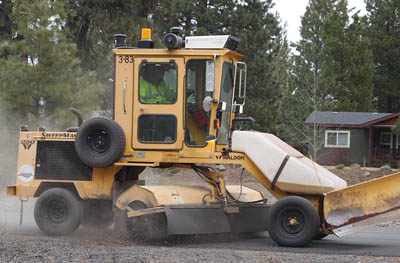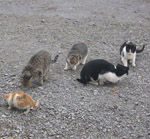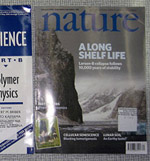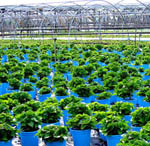Rural road maintenance may accidentally spread invasive plants
 Development,
Development,  Invasive,
Invasive,  Plants
Plants  A smaller road-grader style vehicle being used to sweep winter traction gravel, Deschutes County OR. Credit, Tipthejust.Road maintenance may accidentally spread the seeds of invasive plants, according to Penn State researchers.
A smaller road-grader style vehicle being used to sweep winter traction gravel, Deschutes County OR. Credit, Tipthejust.Road maintenance may accidentally spread the seeds of invasive plants, according to Penn State researchers.
"The road graders that are used during these operations can act like a plow, pushing seeds along the road," said Emily Rauschert, senior project associate and applied ecologist in crop and soil sciences in the College of Agricultural Sciences. "They can pick up seeds of an invasive grass and spread them several orders of magnitude further than the natural dispersal."
The researchers created a computer simulation based on field experiments that showed how road regrading in the spring could play a role in the rapid spread of Japanese stilt grass -- an invasive plant that can grow up to 5 feet tall -- in the Rothrock State Forest area. The plant is considered a threat because its dense growth can prevent trees and native plants from growing.
"Initially, this plant wasn't present locally," Rauschert said. "But within 10 years or so foresters noticed that the plant had spread throughout the area."
The quick spread of Japanese stilt grass in the forest perplexed researchers because experiments had shown that on its own, the plant spread only a few feet each year. The researchers collaborated with the Center for Dirt and Gravel Road Studies at Penn State to understand what was causing the rapid spread of the plant.
To test how road maintenance work may spread seeds, the researchers placed fluorescent-painted seeds along roads before normal grading operations. Because the researchers were wary of introducing any more ecological damage into the park, they did not use the Japanese stilt grass seed but seed with a similar size and shape. As an added precaution, they cooked the seeds prior to the experiment to lessen the chances that the seeds would germinate.
Once the road grading work was finished, the researchers, who presented their computer simulation Aug. 9 at the 96th annual meeting of the Ecological Society of America in Austin, Texas, recorded the new location of the seeds. They recovered more than 11,000 seeds over two years.
Most of the seeds were found within 50 meters of the original location, but a small percentage were recovered more than 250 meters from where they were released.
Rauschert, who worked with David Mortensen, professor of weed ecology in the College of Agricultural Sciences, said that although only a small percentage of the seeds were spread long distances, they are important to understanding the spread of invasive plants. These seeds can create new pockets of growth far from the original plant that can then serve as a launching point for continued spread.
"The seeds that end up moving long distances are key," Rauschert said. "They are the drivers of this rapid growth of an invasive species."
Limiting the spread of seeds is the most cost-effective way for management, rather than chemical or mechanical options, Rauschert said.
For example, road crews could take shorter grading sweeps that would limit the chance of the long-range spread of seeds. Officials also could create buffer zones in natural sensitive areas where grading operations are limited.
--Reprinted from Penn State University




Reader Comments